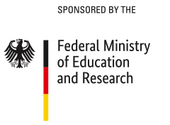The Covid 19 pandemic has shown that model-based forecasts based on historical data often overestimate infection numbers, which weakens public acceptance of these forecasts as a basis for policy decisions. Conventional models do not take into account behavioural changes due to perceived risks and they disregard the impact of crisis communication as well as subjective perceptions. The SEMSAI project aims to explore how model-based forecasts can be adapted to better reflect reality and how the communication of forecasts affects future behaviour. The consortium consists of three partners from the fields of psychology and social science disaster research (KFS), mathematical modelling and prediction (ITWM), and agent-based social simulation (DFKI). The interdisciplinary consortium will investigate these feedback mechanisms and propose how both macro- and micro-scale modelling can benefit from incorporating these reflexive mechanisms that model situational awareness.
- Subproject 1 extends a microscale agent-based contagion model to include reflexive mechanisms of communication, risk perception and trust. These socio-psychological mechanisms will enable more accurate predictions of individual behaviour.
- Subproject 2 develops a macro-level mathematical model for predicting and evaluating the impact of containment measures during a severe epidemic, taking into account challenges such as feedback, calibration and multi-criteria optimisation.
- Subproject 3 explores ways to increase the validity of simulation models for severe infectious diseases from a socio-psychological perspective by analysing population behaviour, identifying relevant influencing factors, assisting in their integration into models, and examining the impact of the models on the population.
Partners
Fraunhofer-Institut für Techno- und Wirtschaftsmathematik (ITWM), Freie Universität Berlin: Katastrophenforschungsstelle (KFS)


